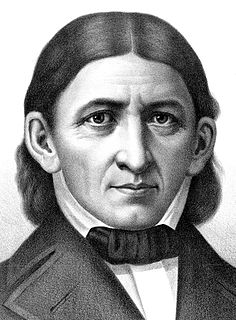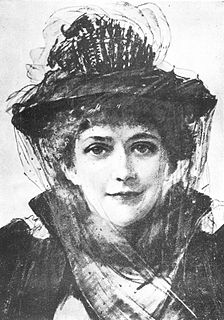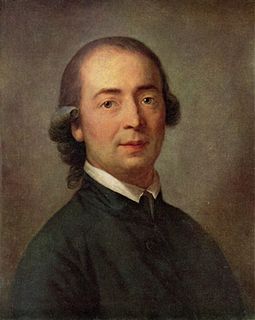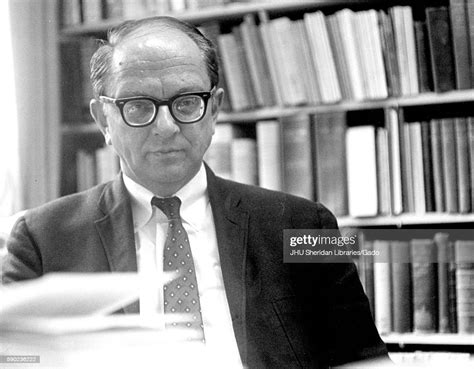A Quote by Hazrat Inayat Khan
Each individual composes the music of his own life. If he injures another, he brings disharmony. When his sphere is disturbed, he is disturbed himself, and there is a discord in the melody of his life. If he can quicken the feeling of another to joy or to gratitude, by that much he adds to his own life; he becomes himself by that much more alive. Whether conscious of it or not, his thought is affected for the better by the joy or gratitude of another, and his power and vitality increase thereby, and the music of his life grows more in harmony.
Related Quotes
First of all, although men have a common destiny, each individual also has to work out his own personal salvation for himself in fear and trembling. We can help one another to find the meaning of life no doubt. But in the last analysis, the individual person is responsible for living his own life and for "finding himself." If he persists in shifting his responsibility to somebody else, he fails to find out the meaning of his own existence. You cannot tell me who I am and I cannot tell you who you are. If you do not know your own identity, who is going to identify you?
The mind grows by self revelation. In play the child ascertains what he can do, discovers his possibilities of will and thought by exerting his power spontaneously. In work he follows a task prescribed for him by another, and doesn't reveal his own proclivities and inclinations; but another's. In play he reveals his own original power.
Since the social victim has been oppressed by society, he comes to feel that his individual life will be improved more by changes in society than by his own initiative. Without realizing it, he makes society rather than himself the agent of change. The power he finds in his victimization may lead him to collective action against society, but it also encourages passivity within the sphere of his personal life.
When the father dies, he writes, the son becomes his own father and his own son. He looks at is son and sees himself in the face of the boy. He imagines what the boy sees when he looks at him and finds himself becoming his own father. Inexplicably, he is moved by this. It is not just the sight of the boy that moves him, not even the thought of standing inside his father, but what he sees in the boy of his own vanished past. It is a nostalgia for his own life that he feels, perhaps, a memory of his own boyhood as a son to his father.
What a wee little part of a person's life are his acts and his words! His real life is led in his head, and is known to none but himself. All day long, the mill of his brain is grinding, and his thoughts, not those of other things, are his history. These are his life, and they are not written. Everyday would make a whole book of 80,000 words -- 365 books a year. Biographies are but the clothes and buttons of the man -- the biography of the man himself cannot be written.
Socrates was the chief saint of the Stoics throughout their history ; his attitude at the time of his trial, his refusal to escape, his calmness in the face of death , and his contention that the perpetrator of injustice injures himself more than his victim, all fitted in perfectly with Stoic teaching. So did his indifference to heat and cold, his plainness in matters of food and dress, and his complete independence of all bodily comforts.
Here's a strange fact: murder a man, and you feel responsible for his life - ''possessive'', even. You know more about him than his father and mother; they knew his fetus, but you know his corpse. Only you can complete the story of his life, only you know why his body has to be pushed into the fire before its time, and why his toes curl up and fight for another hour on earth.
With only one life to live we can't afford to live it only for itself. Somehow we must each for himself, find the way in which we can make our individual lives fit into the pattern of all the lives which surround it. We must establish our own relationships to the whole. And each must do it in his own way, using his own talents, relying on his own integrity and strength, climbing his own road to his own summit.
Where no man thinks himself under any obligation to submit to another, and, instead of co-operating in one great scheme, every one hastens through by-paths to private profit, no great change can suddenly be made; nor is superior knowledge of much effect, where every man resolves to use his own eyes and his own judgment, and every one applauds his own dexterity and diligence, in proportion as he becomes rich sooner than his neighbour.
A priest is a man vowed, trained, and consecrated, a man belonging to a special corps, and necessarily with an intense esprit de corps. He has given up his life to his temple and his god. This is a very excellent thing for the internal vigour of his own priesthood, his own temple. He lives and dies for the honour of his particular god. But in the next town or village is another temple with another god. It is his constant preoccupation to keep his people from that god. Religious cults and priesthoods are sectarian by nature; they will convert, they will overcome, but they will never coalesce.





































